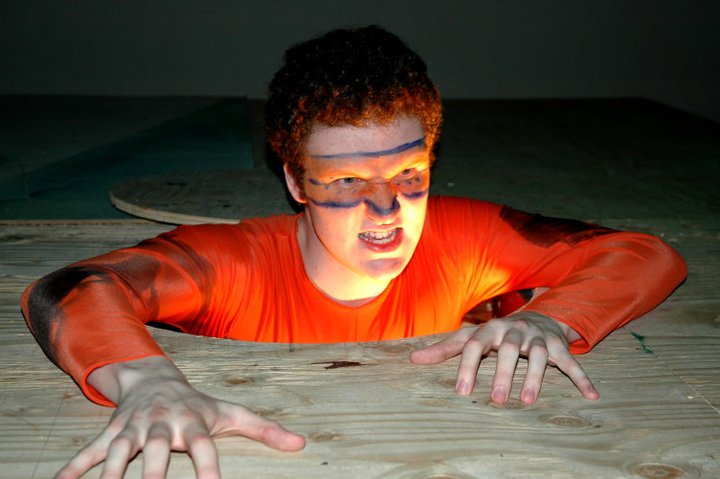Date Posted: April 8, 2011
Print Edition: April 8, 2011
By Paul Esau (Sports Editor) – Email
 The opinion article “UFV Theatre Department Steals From Students” in last week’s publication raised some questions about the casting practices of the UFV Theatre, and particularly in the casting of this year’s production of The Tempest. Although certain elements of the article were, unfortunately, inaccurate, the central query concerning the participation of non-students in university productions is both relevant and valid. Why are members of the larger community given opportunity to compete against tuition-paying students for roles in UFV plays? Why was Glen Pinchin, allegedly a non-student, awarded the leading role of Prospero in The Tempest? Is UFV indeed unique in this practice, or do other university theatre programs cast from outside their student body as well?
The opinion article “UFV Theatre Department Steals From Students” in last week’s publication raised some questions about the casting practices of the UFV Theatre, and particularly in the casting of this year’s production of The Tempest. Although certain elements of the article were, unfortunately, inaccurate, the central query concerning the participation of non-students in university productions is both relevant and valid. Why are members of the larger community given opportunity to compete against tuition-paying students for roles in UFV plays? Why was Glen Pinchin, allegedly a non-student, awarded the leading role of Prospero in The Tempest? Is UFV indeed unique in this practice, or do other university theatre programs cast from outside their student body as well?
According to UFV Theatre Department Head Bruce Kirkley, who also happened to direct last month’s production of The Tempest, the “blended casting of students, staff, faculty, graduate students and community performers” (from the Theatre Department Procedures) provides an integral part of a theatre student’s education. “[They] bring a lot of knowledge and skill that they pass along to our students,” argues Kirkley, who is adamant both that the students benefit from such mentorship and that the impact upon students’ opportunity to perform is negligible:
“If you look at our production seasons year after year after year, and you look at the number of people who are current acting students, currently registered in theatre courses, who are cast, I mean the percentage of students cast compared to those who are not [students] is well over ninety percent. When someone who is a graduate of the program, or a faculty member, or a community member is cast, they are the exception.”
Kirkley also explained that of the nineteen roles cast in his production of The Tempest, only one was filled by an individual not enrolled in a UFV class this semester. He claims that “every single cast member in the show was a currently registered theatre student, registered in an acting class or a theatre course. The only exception was Prospero, played by Glen Pinchin, but [Pinchin] is a graduate of the [UFV Theatre] program and is still a UFV student. He’s graduated from the program but he does come back and do courses from time to time.”
According to Kirkley, part of the decision to cast Mr. Pinchin was based upon the Theatre Department’s commitment (as stated in the Department Procedures) to casting roles “to the appropriate age range” where possible. The fact that other mature characters in the play were portrayed by students is not a contradiction, but instead a pragmatic choice. Kirkley freely admits that “to do [otherwise] would take parts away from students who are currently registered in the program, so you have to balance it out.” He also denies the suggestion that Mr. Pinchin was not required to audition for the part of Prospero, suggesting “the implication coming across… is that the person didn’t even audition for the role, which isn’t the case. The person was invited to audition, but that, you know, lots of times people are invited to audition.” An invitation to audition, Kirkley consequently explained, does not guarantee that one will be casted in any role.
He also asserts that UFV Theatre is not alone in its practice of casting from outside its own student population:
“There are many, many university theatre programs right across the country whose auditions are open to the entire university community and to the outside community as well. It doesn’t mean that their objective is to try to shut out the students… it’s just that part of the education experience you’re going to have as someone who has the opportunity to be cast in a show is to work with people who have that kind of experience.”
Consequently, Kirkley is confused by the suggestion that his department is “stealing” from UFV’s Theatre students. “ Our students are the whole reason we exist!” he protests, “they are the center of everything we do!”


